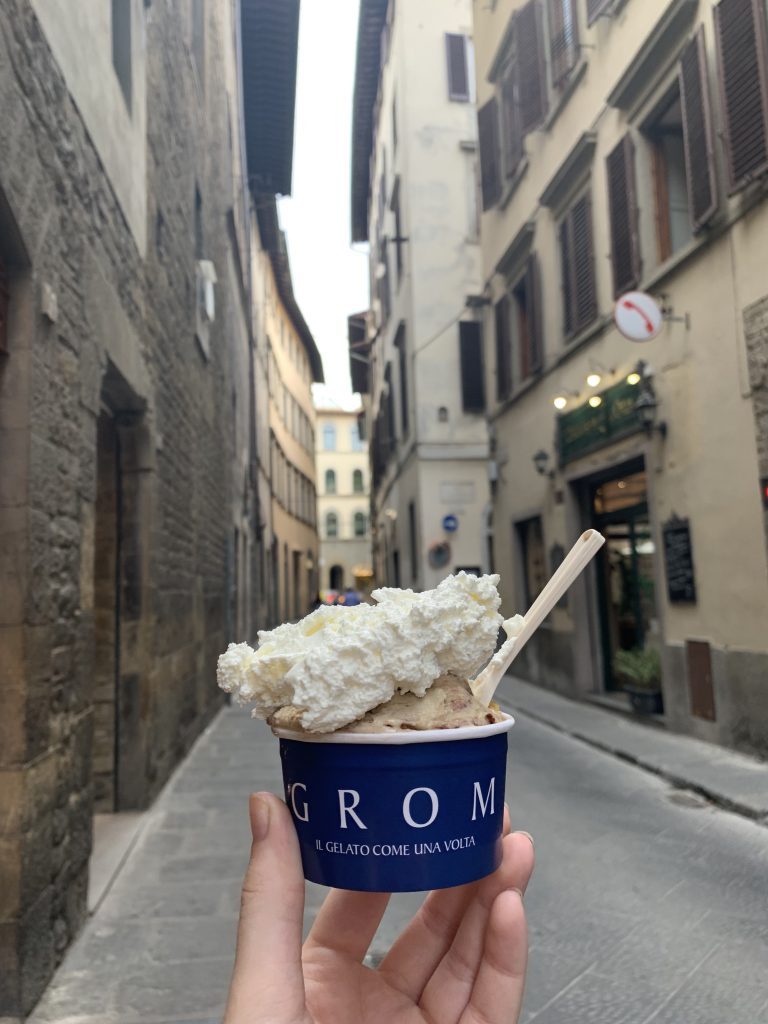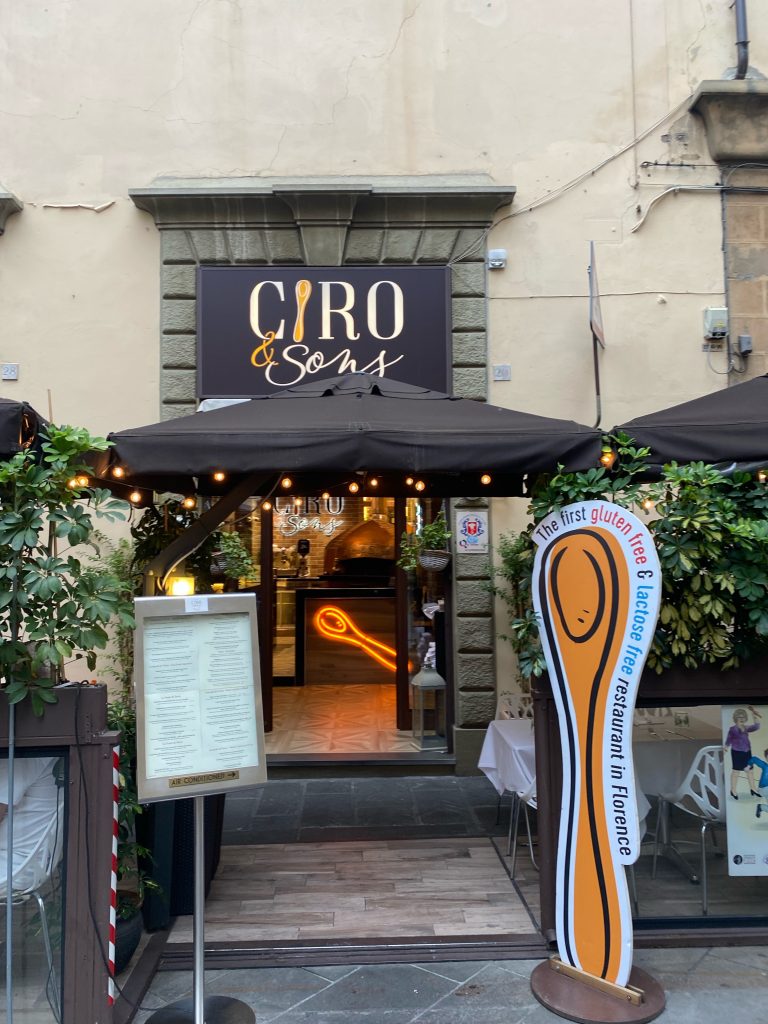Oh, Italy. The land of pizza, pasta, and all things gluten. This should be such a lovely experience for all food lovers, however, there is just one issue. I have Celiac Disease.
I know what you may be thinking, “Why on Earth would you study abroad in Italy!” The thing is… they are actually quite accommodating. In fact, for citizens with Celiac, the government offers up to 140 Euros a month to cover the extra costs associated with gluten-free foods. Needless to say, they know what they’re doing.

My favorite gelato from Grom! The entire store is gluten-free, I got tiramisu flavored gelato!
Since food culture is huge in Italy, they are very proud of their accommodations. It is not uncommon to see signs outside restaurants boasting of their gluten-free, dairy-free, or vegetarian options. They also keep their standards high when it comes to these foods. At a restaurant, I was even told they did not serve gluten-free pizza as it was frozen. They care about the ingredients they use and the quality of their product.

Ciro and Sons is an amazing restaurant! They have a separate gluten-free kitchen and everything can be made gluten free!
Even with these assurances, it is still nerve-wracking to go to a new country with a special diet so I have written out some tips to ensure you are successful in your study abroad journey!
- Do your research. This may be a given, but searching the internet for restaurants makes it a lot easier to know what you are looking for. There may be blogs, Facebook groups, and restaurant reviews that will help you navigate food in the city. There has always been someone searching for the same thing as you, so you will find what you need.
- Learn the vocabulary around your dietary restriction. In Italy, the word “senza” will be incredibly useful. It means without, so if you require gluten-free foods you would say “senza glutine”. This is similar to dairy-free, “senza latte/latticini”, peanut-free, “senza noccioline”, and more! By learning the vocabulary, it is easier to communicate your needs to those who may not be familiar with the English translation.
- Walk around your host city. As I said, Italians are very proud of the accommodations they provide and they will show it. Even if you do not have much luck with searching the internet, you will be able to find something when you arrive. Another tip, if you ask restaurants, they may be able to help even more. If your accommodations aren’t advertised, there is still a chance they have something for your needs. I have found many great restaurants using this method.

Coffee will always be a safe option for my gluten-free people! They have such delicious coffee here.
Although studying abroad itself is daunting, studying abroad with a dietary restriction is an even more difficult task, but you are not alone. You are not the first person in this situation, and you will have a million resources to help you in this journey. Ask the SAI staff, contact alumni, use every resource provided to you. I can guarantee that you will have an amazing time, despite whatever dietary restrictions you have.
Lauren is a Fall 2021 Florence student from the University of South Carolina.


Comments
No comments yet